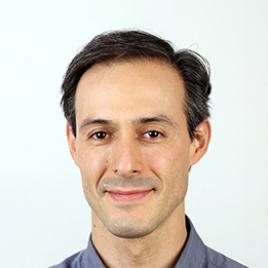Objectives and competences
The teaching of Human Physiology has the following general objectives:
- transmit to students the terminology, language and concepts that constitute a knowledge base in the various areas of physiology;
- provide students with the basic knowledge to understand the organic, cellular and subcellular mechanisms underlying the normal functioning of the different devices and systems of the human organism;
- understand the interaction of different devices and systems, as well as their adaptation to the changing environment;
- establish as a basis for understanding changes in homeostasis/mechanisms and disease manifestations;
- develop an ability to study and integrate knowledge.
It is intended that students develop critical problem-solving skills.
Teaching Methodologies
The Curricular Unit of Human Physiology is divided into two theoretical classes of 90 minutes each per week (total: 36) and one theoretical-practical class of 90 minutes per week per class (total: 16.5) which constitute the contact hours of students with the teacher.
In theoretical classes, concepts of Human Physiology are presented, such as an introduction or synopsis of major themes that are taught with audiovisual means (Powerpoint presentations).
For the theoretical-practical classes, students are expected to prepare in advance the subjects to be addressed in order to proceed with the discussion and resolution of questions related to the subjects covered in the theoretical classes. It is expected that students, in this type of classes, are able to integrate, discuss and critically analyze the concepts presented in theoretical classes.
Teacher-student communication and the availability of study material will be carried out through the Blackboard platform.
Syllabus
Contents - Theoretical classes:
- Cellular and nervous system physiology
- Muscle physiology
- Circulatory system: heart
- Circulatory system: circulation and peripheral regulation
- Circulatory system: blood
- Respiratory system
- Gastrointestinal system
- Nutrition, metabolism and temperature regulation
- Urinary system, electrolytes and acid-base balance
- Integration of central nervous system (SN) and autonomic SN functions
- Functional organization of the endocrine system
- Endocrine glands
- Bone physiology and reproductive system
Contents - Theoretical-Practical Classes:
In theoretical-practical classes, it is intended that students acquire the ability to solve questions related to the functioning of different devices and systems of the human organism. It is also intended that students in this type of classes are able to integrate and discuss the concepts presented in theoretical classes.




